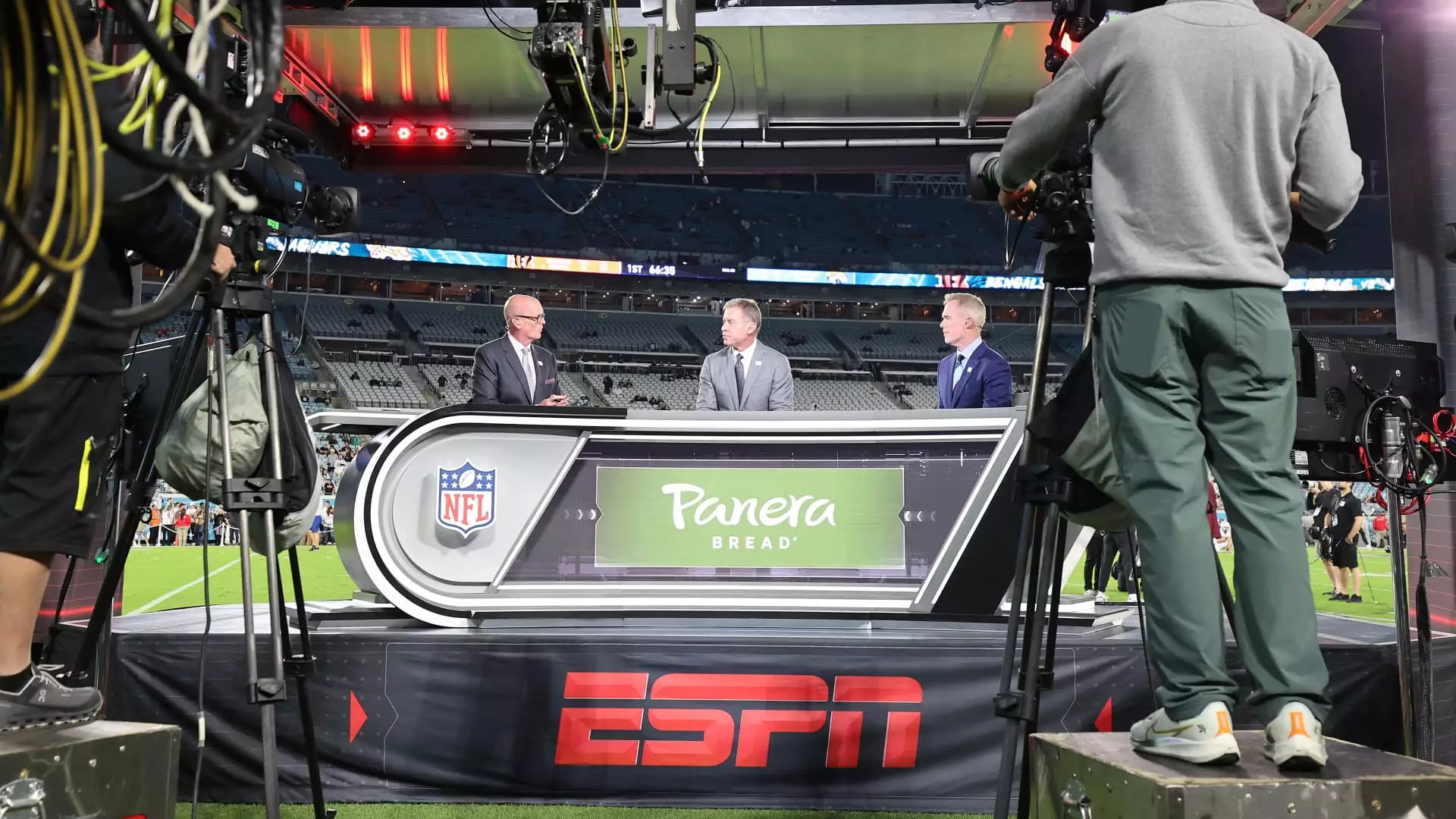Millions of DirecTV customers are facing the possibility of missing out on watching the NFL’s opening “Monday Night Football” game on ESPN due to an ongoing dispute between the satellite provider and network parent Disney. This disagreement involves a battle over fees and bundling, causing Disney’s TV networks to go dark for DirecTV customers starting on September 1st. Networks impacted include popular channels like ESPN and FX, as well as ABC in certain markets.
The lack of resolution between Disney and DirecTV has left fans in limbo, especially with high-profile sporting events like the U.S. Open and college football games at stake. With live sports being a major draw for viewers and media rights deals commanding significant fees, the inability to watch sports events on these channels is a significant blow for DirecTV customers.
ESPN, known for its premium sports content, is one of the channels at the center of this dispute. The network commands some of the highest fees in the industry for pay-TV companies to carry its channels, symbolizing the value of sports programming in the TV landscape. Despite the rise of streaming services, sports remain a key component of traditional pay-TV bundles, making carriage disputes like this impactful on consumers.
The involvement of the Federal Communications Commission (FCC) and a recent lawsuit blocking the launch of sports streaming service Venu further complicates the situation. Antitrust concerns have been raised by pay-TV providers like DirecTV, arguing against the potential negative impact of Venu on their businesses. This legal aspect adds another layer to the already contentious relationship between Disney and DirecTV.
As customers navigate this blackout situation, DirecTV has pointed them to alternative ways to watch ESPN programming. The company has also offered a credit to affected customers and filed a complaint with the FCC alleging Disney’s lack of good faith negotiation. The potential long-term ramifications of these disputes on industry competition and consumer choice are significant.
Carriage disputes like the one between DirecTV and Disney are not uncommon in the industry, with past examples involving major players like Charter Communications. The resolution often hinges on high-profile events like NFL games, which have historically played a role in speeding up negotiations. However, the changing landscape of media consumption and the rise of streaming services continue to reshape these dynamics.
The ongoing dispute between DirecTV and Disney represents a complex intersection of business interests, legal challenges, and consumer impact. The inability to watch Monday Night Football highlights the stakes involved in these negotiations and the broader shifts in the media industry towards new forms of content delivery. As fans await a resolution, the implications of this conflict resonate beyond a single game, touching upon the future of TV distribution and sports programming.

Leave a Reply